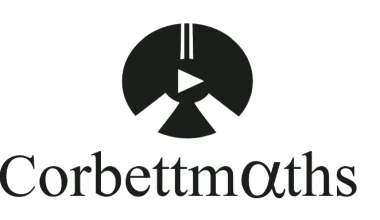If you dream of telling stories on a national or global stage, a career in broadcast journalism will be right for you. But with so many colleges to choose from, how do you know which is the best for broadcast journalism schools?
Broadcast journalism is a dynamic and ever-evolving field, and the best broadcast journalism colleges are constantly adapting to the latest trends. These schools offer students the opportunity to learn from experienced professionals, gain hands-on experience, and develop the skills they need to succeed in this competitive field.
So, if you’re looking for a school that will give you the skills and experience you need to succeed in broadcast journalism, the schools in this article will prepare you for a career in any area of broadcast journalism, from news reporting to anchoring to producing.
Table of contents
- What Should I Look for in a Top Broadcast Journalism School?
- Is Journalism a Bachelor of Arts (BA) or Bachelor of Science (BS) degree?
- What are the Requirements/Skills for A Broadcast Journalism Degree?
- Best Broadcast Journalism Colleges 2024
- #1. Columbia University
- #2. University of California, Berkeley
- #3. University of Southern California
- #4. Boston University
- #5. Northwestern University
- #6. University of Pennsylvania
- #7. University of Wisconsin-Madison
- #8. University of Missouri
- #9. Arizona State University
- #10. Syracuse University
- #11. University of Miami
- #12. University of Illinois
- #13. University of South Carolina
- #14. University of Nebraska
- #15. Temple University
- #16. George Washington University
- #17. Rutgers University-New Brunswick
- What are the Career Paths with a Degree in Broadcast Journalism?
- FAQs on the Best Broadcast Journalism Schools in 2024
- Conclusion
- References
- Recommendations
What Should I Look for in a Top Broadcast Journalism School?
Here are some things you should look for in a top broadcast journalism school:
- A strong faculty: A top broadcast journalism school will have a faculty of experienced journalists who are passionate about teaching. They should be able to provide you with the skills and knowledge you need to succeed in the field.
- Up-to-date facilities: A top broadcast journalism school will have the latest facilities, including studios, newsrooms, and editing bays. This will allow you to learn how to use the latest technology and produce high-quality content.
- Opportunities for hands-on experience: A top broadcast journalism school will offer you opportunities to get hands-on experience in the field. This could include internships, field trips, and student-produced projects.
- A strong alumni network: A top broadcast journalism school will have a strong alumni network that can help you land a job after graduation. Alumni can offer you advice, mentorship, and job leads.
In addition to these factors here are some additional tips for choosing a top broadcast journalism school:
- Visit the schools you’re interested in: This is the best way to get a feel for the school and see if it’s a good fit for you.
- Talk to current students and alumni: They can give you valuable insights into the school and the program.
- Consider your career goals: What type of work do you want to do after graduation? Choose a school that has a strong reputation in the field you’re interested in.
- Don’t forget to factor in cost: Tuition and fees can vary significantly from school to school. Make sure you can afford the school you choose.
Read also: Understanding Columbia Transfer Acceptance Rate: Surprising Facts and Insider Tips
Is Journalism a Bachelor of Arts (BA) or Bachelor of Science (BS) degree?
Journalism can be a Bachelor of Arts (BA) or Bachelor of Science (BS) degree, depending on the school. BA programs in journalism typically focus on the humanities and social sciences, while BS programs focus on the sciences and technology.
Some schools also offer a Bachelor of Applied Science (BAS) in journalism, which is a hybrid program that combines elements of both BA and BS programs.
Here are some examples of schools that offer BA, BS, and BAS programs in journalism:
- BA in Journalism:
- Boston University
- Columbia University
- New York University
- BS in Journalism:
- Arizona State University
- Emerson College
- Northeastern University
- BAS in Journalism:
- Syracuse University
- University of Missouri
- University of Wisconsin-Madison
What are the Requirements/Skills for A Broadcast Journalism Degree?
Here are some of the specific requirements for a broadcast journalism degree:
- General education requirements: Most broadcast journalism programs require students to complete a certain number of general education courses in areas such as English, math, science, and social studies.
- Core courses: In addition to general education courses, broadcast journalism programs typically require students to take core courses in areas such as news writing, reporting, interviewing, editing, and production.
- Elective courses: In addition to core courses, broadcast journalism programs typically offer a variety of elective courses that allow students to explore their interests and develop their skills in specific areas of broadcast journalism.
- Internships: Many broadcast journalism programs require students to complete an internship at a local news organization. Internships provide students with the opportunity to gain hands-on experience in the field and to network with professionals.
- Capstone project: In addition to coursework, broadcast journalism programs typically require students to complete a capstone project. Capstone projects allow students to demonstrate their skills and knowledge in a real-world setting.
In addition to the requirements, here are some of the skills to succeed in a broadcast journalism program:
- Strong writing and reporting skills: Broadcast journalists must write clear, concise, and engaging stories.
- Excellent communication skills: Broadcast journalists must communicate effectively in both verbal and written formats. They must also be able to think on their feet and adapt to changing situations.
- Technical skills: Broadcast journalists must be proficient in using various technical equipment, including cameras, microphones, and editing software.
- A passion for news: Broadcast journalists must be passionate about news and current events. They must also be willing to work long hours and travel to different locations.
Read also: 15 Best Universities in UK for physics
Best Broadcast Journalism Colleges 2024
Here are the best broadcast journalism schools in 2024
#1. Columbia University
Columbia University in New York City is a private Ivy League research university. Its Graduate School of Journalism is one of the most prestigious in the world, and its alumni include many notable journalists, such as Edward R. Murrow, Walter Cronkite, and Dan Rather.
Columbia University has an acceptance rate of 6.1% and a tuition of $58,044. Broadcast Journalism, International Affairs, and Political Science are its most popular programs. Unique requirements include submitting a personal statement, two letters of recommendation, and SAT or ACT scores.
#2. University of California, Berkeley
University of California, Berkeley is a public research university in Berkeley, California. Its School of Journalism is one of the oldest and most respected in the country, and its alumni include many notable journalists, such as Connie Chung, Tom Brokaw, and Peter Jennings.
University of California, Berkeley has an acceptance rate of 16.6% and a tuition of $13,296 (in-state) or $43,576 (out-of-state). Its most popular programs are Broadcast Journalism, Political Science, and Economics. Unique requirements include submitting a personal statement, two letters of recommendation, and SAT or ACT scores.
#3. University of Southern California
University of Southern California in Los Angeles is a private research university. Its Annenberg School for Communication and Journalism is one of the top-ranked journalism schools in the country. Its alumni include many notable journalists, such as Diane Saefwyer, Katie Couric, and Bob Woodward.
The University of Southern California has an acceptance rate of 16% and a tuition of $57,524. Its most popular programs are Broadcast Journalism, Cinema and Media Studies, and Business Administration.
#4. Boston University
Boston University in Boston, Massachusetts is a private research university. Its College of Communication is one of the top-ranked journalism schools in the country. Its alumni include many notable journalists, such as Christiane Amanpour, Brian Williams, and Soledad O’Brien. Boston University has an acceptance rate of 25% and a tuition of $53,052.
Broadcast Journalism, International Relations, and Business Administration are its most popular programs. Unique requirements include submitting a personal statement, two letters of recommendation, and SAT or ACT scores.
Read: Psychology and Sociology Majors: What’s the Difference & Similarities?
#5. Northwestern University
Northwestern University in Evanston, Illinois, is a private research university. Its Medill School of Journalism is one of the top-ranked journalism schools in the country. Its alumni include many notable journalists, such as Bob Schieffer, Lesley Stahl, and David Gregory.
Northwestern University has an acceptance rate of 10.7% and a tuition of $56,252. Its most popular programs are Broadcast Journalism, Economics, and Political Science. Unique requirements include submitting a personal statement, two letters of recommendation, and SAT or ACT scores.
#6. University of Pennsylvania
The University of Pennsylvania, located in Philadelphia, Pennsylvania, is a private Ivy League research university. Its Annenberg School for Communication is one of the top-ranked journalism schools in the country.
The University of Pennsylvania has an acceptance rate of 8.8% and a tuition of $57,810. Its most popular programs are Broadcast Journalism, Economics, and Political Science. Its alumni include many notable journalists, such as Gretchen Carlson, Meredith Vieira, and George Stephanopoulos.
#7. University of Wisconsin-Madison
The University of Wisconsin-Madison, located in Madison, Wisconsin, is a public research university. Its School of Journalism and Mass Communication is one of the top-ranked journalism schools in the country. Its alumni include many notable journalists, such as Scott Pelley, Rick Sanchez, and Jane Pauley.
The University of Wisconsin-Madison has an acceptance rate of 54% and a tuition of $10,738 (in-state) or $35,928 (out-of-state). Its most popular programs are Broadcast Journalism, Political Science, and Economics. Unique requirements include submitting a personal statement, two letters of recommendation, and SAT or ACT scores.
#8. University of Missouri
University of Missouri in Columbia, Missouri is a public research university. Its School of Journalism is one of the oldest and most respected in the country. Its alumni include many notable journalists, such as Harry Reasoner, Peter Alexander, and Diane Sawyer.
The University of Missouri has an acceptance rate of 78% and a tuition of $9,148 (in-state) or $27,838 (out-of-state). Its most popular programs are Broadcast Journalism, Journalism, and Political Science. Unique requirements include submitting a personal statement, two letters of recommendation, and SAT or ACT scores.
#9. Arizona State University
Arizona State University in Tempe, Arizona is a public research university. Its Walter Cronkite School of Journalism and Mass Communication is one of the top-ranked journalism schools in the country. Arizona State University has an acceptance rate of 86% and a tuition of $10,738 (in-state) or $35,928 (out-of-state).
Its most popular programs are Broadcast Journalism, Communication, and Business Administration. Unique requirements include submitting a personal statement, two letters of recommendation, and SAT or ACT scores. Its alumni include many notable journalists, such as Soledad O’Brien, T.J. Holmes, and Christiane Amanpour.
#10. Syracuse University
Syracuse University in Syracuse, New York, is a private research university. Its S.I. Newhouse School of Public Communications is one of the top-ranked journalism schools in the country. Syracuse University has an acceptance rate of 52% and tuition of $53,114.
Broadcast Journalism, Public Relations, and Business Administration are its most popular programs. Unique requirements include submitting a personal statement, two letters of recommendation, and SAT or ACT scores. Its alumni include many notable journalists, such as Katie Couric, Brian Williams, and Robin Roberts.
Read also: Sample Letter of Recommendation (LOR) for Masters (MS) Courses| 2024
#11. University of Miami
University of Miami in Coral Gables, Florida is a private research university. Its School of Communication offers a Bachelor of Arts in Broadcast Journalism. Its alumni include many notable journalists, such as Soledad O’Brien, Jorge Ramos, and Maria Hinojosa.
The University of Miami has an acceptance rate of 37% and a tuition of $52,628. Broadcast Journalism, International Studies, and Business Administration are its most popular programs. Unique requirements include submitting a personal statement, two letters of recommendation, and SAT or ACT scores.
#12. University of Illinois
The University of Illinois at Urbana-Champaign, in Urbana, Illinois, is a public research university. Its College of Media is a top-ranked journalism school in the country. Its alumni include many notable journalists, such as Diane Sawyer, John Roberts, and Scott Pelley.
The University of Illinois has an acceptance rate of 60% and a tuition of $12,198 (in-state) or $37,498 (out-of-state). Its most popular programs are Broadcast Journalism, Political Science, and Economics. Unique requirements include submitting a personal statement, two letters of recommendation, and SAT or ACT scores.
#13. University of South Carolina
The University of South Carolina in Columbia, South Carolina is a public research university. Its College of Journalism and Mass Communications is a top-ranked journalism school in the country. Its alumni include many notable journalists, such as Ed Bradley, Charles Gibson, and Diane Sawyer.
The University of South Carolina has an acceptance rate of 75% and a tuition of $10,894 (in-state) or $36,194 (out-of-state). Its most popular programs are Broadcast Journalism, Journalism, and Political Science. Unique requirements include submitting a personal statement, two letters of recommendation, and SAT or ACT scores.
#14. University of Nebraska
University of Nebraska-Lincoln in Lincoln, Nebraska is a public research university. Its College of Journalism and Mass Communications is a top-ranked journalism school in the country. Its alumni include many notable journalists, such as Tom Brokaw, Peter Jennings, and Scott Pelley.
University of Nebraska-Lincoln in Lincoln, Nebraska has an acceptance rate of 84% and a tuition of $9,716 (in-state) or $28,416 (out-of-state). Its most popular programs are Broadcast Journalism, Journalism, and Political Science. Unique requirements include submitting a personal statement, two letters of recommendation, and SAT or ACT scores.
#15. Temple University
Temple University in Philadelphia, Pennsylvania is a public research university. Its Klein College of Media and Communication is a top-ranked journalism school in the country. Temple University in Philadelphia, Pennsylvania has an acceptance rate of 59% and a tuition of $14,072 (in-state) or $39,072 (out-of-state).
Its most popular programs are Broadcast Journalism, Communication, and Business Administration. Unique requirements include submitting a personal statement, two letters of recommendation, and SAT or ACT scores.
Its alumni include notable journalists, such as Anderson Cooper, Soledad O’Brien, and Christiane Amanpour.
#16. George Washington University
George Washington University in Washington, D.C. is a private research university. Its School of Media and Public Affairs is a top-ranked journalism school in the country. Its alumni include many notable journalists, such as Gwen Ifill, Wolf Blitzer, and Andrea Mitchell.
George Washington University has an acceptance rate of 43% and a tuition of $53,114. Its most popular programs are International Affairs, Political Science, and Business Administration. Unique requirements include submitting a personal statement, two letters of recommendation, and SAT or ACT scores.
#17. Rutgers University-New Brunswick
Rutgers University-New Brunswick in New Brunswick, New Jersey is a public research university. Its School of Communication and Information is a top-ranked journalism school in the country. Its alumni include many notable journalists, such as Katie Couric, Brian Williams, and Christiane Amanpour.
Rutgers University-New Brunswick in New Brunswick, New Jersey has an acceptance rate of 56% and a tuition of $12,542 (in-state) or $37,742 (out-of-state). Broadcast Journalism, Public Policy, and Business Administration are its most popular programs. Unique requirements include submitting a personal statement, two letters of recommendation, and SAT or ACT scores.
Read also: List of Top Universities & Colleges for Masters in UK – Ranking, Fees, & Requirements
What are the Career Paths with a Degree in Broadcast Journalism?
Here are some career paths you can explore with a degree in broadcast journalism:
- News Anchor: News anchors are the faces of television news programs. They deliver the news, introduce stories, and interview guests. They must be able to speak clearly and concisely and project confidence and authority.
- Reporter: Reporters gather information about current events and write or produce news stories for television, radio, or the Internet. They must be able to write clearly and concisely and gather information quickly and accurately. They must also be able to interview people and write about sensitive topics fairly and objectively.
- Producer: Producers are responsible for the overall production of a television or radio news program. They work with reporters, anchors, and other news team members to ensure that the program is accurate, informative, and engaging.
- Editor: Editors are responsible for the final production of a television or radio news program. They work with producers, reporters, and anchors to ensure that the program is error-free and meets the network or station’s standards. Editors must have a keen eye for detail and a strong understanding of grammar and syntax.
- Videographer: Videographers are responsible for shooting and editing video footage for television or radio news programs. Videographers must be able to use a variety of video cameras and editing software, and they must be able to shoot and edit clear, concise, and engaging video.
- Audio Engineer: Audio engineers are responsible for the sound quality of television or radio news programs. They work with producers, reporters, and anchors to ensure the program’s audio is clear, understandable, and free of background noise.
Read also: 15 Best Art Universities in UK | 2024
FAQs on the Best Broadcast Journalism Schools in 2024
When choosing a broadcast journalism school, there are a few factors to consider, for the program including:
reputation
facilities
alumni network
program’s cost
Graduates of broadcast journalism programs can pursue a variety of careers, including:
News reporter
Anchor
Producer
Editor
Videographer
Audio engineer
Public relations specialist
Advertising copywriter
Marketing researcher
The specific career you choose will depend on your interests and skills.
In addition to strong writing and reporting skills, broadcast journalists also need to have strong verbal and written communication skills. They should also be able to work well under pressure and meet deadlines.
The salary range for broadcast journalists varies depending on experience, location, and the type of media outlet. According to the Bureau of Labor Statistics, the median annual salary for reporters and correspondents was $66,000.
The job outlook for broadcast journalists is projected to decline by 9% from 2020 to 2030, slower than the average for all occupations. This decline is due to several factors, including the decline of traditional media outlets and the rise of digital media.
Conclusion
There are many excellent broadcast journalism schools in the United States, and the best one for you will depend on your individual needs and goals. When choosing a college, it’s important to consider the program’s reputation, facilities, alumni network, and cost.
If you’re passionate about broadcast journalism and are willing to work hard, a degree from one of these top colleges can give you the skills and experience you need to succeed in this competitive field.
References
- learn.org.com – Best Broadcast Journalism Colleges
- universities.com – Best Broadcast Journalism colleges in the U.S. 2024
- prepler.com – Best Broadcast Journalism Colleges & Universities in America
Recommendations
- Is Duke an Ivy League School? All You Need To Know in 2024
- Drew Charter School: What to know before Applying in 2024
- What is it like to attend Hunter College High School? Best Advice
- Do Grades Matter in My Success in Life? Data Proven Answers
- “Why Did You Choose This School?” How to Write this Essay | 2024




